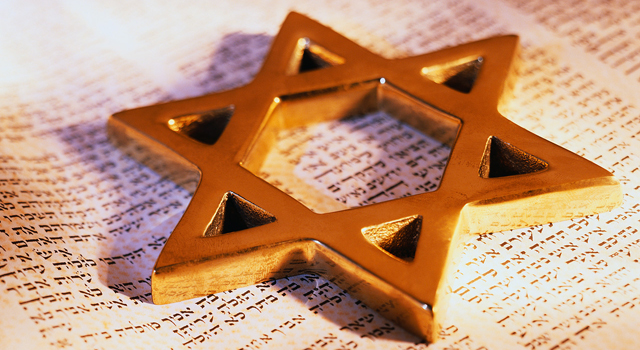
Korach
By Shlomo Riskin
“And they rose up in the face of Moses” (Num. 16:2)
When is dissension and argument positive, healthy debate and an outgrowth of “these and those are the word of the Living G-d” [B.T. Eruvin 13] and when is dispute negative, a venomous cancer which can destroy the very underpinning of our nation? Apparently Korach’s rebellious dissent is negative, as the Talmud maintains: “Rav said: He who is unyielding in maintaining a dispute violates a negative command, as it is written, `And let him not be as Korach, and his company'” [B.T. Sanhedrin 110a]. But can we glean from this statement operative guide-lines as to when it is right and when it is wrong to argue.
We all know the story of Korach, the subject of this week’s Torah portion; this rebel against Mosaic authority and Aaronic Priesthood influenced 250 leading Israelite personages to stand up against the established and Divinely ordained leadership.
After a contest between the upstarts and Moses involving the offering of fire-pans of incense to determine the chosen of G-d, which concludes with Korach and his cohorts being consumed by a Divine fire, G-d commands that the 250 pans of the rebels be pounded into plates to cover the altar: “To be a memorial to the children of Israel, that no stranger who is not of the seed of Aaron, come near to offer incense before G-d; do not be as Korach, and his company, as G-d said by the hand of Moses, concerning him” (Num.17:5).
Rav’s prooftext regarding an unyielding disputant comes from this verse; the Bible is therefore saying, according to Rav’s interpretation, that no one should ever again maintain a dispute, as G-d said concerning him, that is, concerning Korah. This view would maintain that the problem of Korah was that he would not give in and continued the argument; one may raise a dissenting opinion, but when the accepted leader rejects it, the dissenter must back down.
Rashi suggets a different understanding . He takes the pronoun “him” to refer to Aaron; the problem with Korah’s argument was that he was challenging G-d’s chosen Kohanimo—descendants of Aaron—as the only legitimate priests. Such a challenge can never be allowed in the future, “as G-d said concerning him,” that is concerning Aaron.
Rav Isaac Bernstein, z”l, of London, in a masterful lecture, cited the Hatam Sofer, who claims that it is the attitude of the dissenter—and not the subject of his dissent—which makes the difference. This Sage bemoans the fact that all too often, when two people argue, one (or both) of the parties involved will claim that only he has a direct pipeline to G-d; consequently only he has the only right opinion, and the other view must be totally delegitimized. These individuals claim that they are arguing “for the sake of heaven, in the name of G-d and Torah”.
Supporting his view, the Hatam Sofer reads the verse, “don’t be like Korach, and his company, (who argued that) G-d spoke by the hand of Moses (only) to him;” to Korah; it is forbidden for any individual to maintain that God speaks only to him, that only he knows the truth, and that there is no possibility of truth to his opponent. Hence an illegitimate and therefore improper debate is one which seeks to de-legitimize the other side, declaring that only one side has the whole truth!
The Hatam Sofer proves his point from the case of R. Eliezer in the Talmud—who actually did have a pipeline to G-d [B.T. Bava Metzia 59b]—but nevertheless was bested in debate by the Sages because, in the final analysis, halakha is determined by the logic of the majority of the Sages, not by voices from heaven.
The Talmud records how R. Eliezer disagreed with his contemporaries on the status of a particular oven. He was absolutely convinced that he was right, and to prove his claim, he asked and received a series of signs from heaven demonstrating the accuracy of his halakhic opinion. Nevertheless, since his was a minority view in the face of a majority ruling, his refusal to relent led to his excommunication. The case of R. Eliezer is brought to teach that even if you are certain that G-d is on your side, you dare not read the other view out of the realm of legitimacy.
Rabbi Bernstein further directs us to another fascinating source. We have a mishnah in Tractate Sukkah with the following law: “If a man’s head and the greater part of his body were within the sukkah and his table of food and within the house, (this outside of the Sukkah) Bet Shammai declared such a meal on Sukkot to be invalid and Bet Hillel declared it valid… Bet Hillel says to Bet Shammai: `Was there not an incident wherein the elders of Bet Shammai and elders of Bet Hillel went to visit R. Yochanan the son of the Hurani, and they found him sitting with his head and the greater part of his body in a sukkah, and the table of food inside the house, and they did not make any comment about it. Did this not imply that the Academy of Shammai had acquiesced in this case to the Academy of Hillel! ‘ Bet Shammai said to them: `Here (specifically) is the proof (to our position).’ In actuality the elders of Bet Shammai did say to R. Yochanan `If it is in such a way that you always perform (the mitzvah of Sukkah), then you never (successfully) performed the commandment in your life-time’ [Mishnah Sukkah 2:7].” And so Bet Shammai never gave in to Bet Hillel!
How are we to understand the mishnah?
This issue is addressed in the work of R. Naftali of Vermaiser, “Maleh Ratzon”, in which he explained the mishnah as follows: the elders of Bet Shammai and the elders of Bet Hillel had indeed been present together at the sukkah of R.Yochanan, and they all saw that their host conducted himself in accordance with the law of Bet Hillel. Bet Shammai, although of a different opinion than Bet Hillel, said nothing—because of their respect for Bet Hillel and because they understood the validity of a dissenting opinion different from their own. Only after the elders of Bet Hillel left the sukkah did the elders of Bet Shammai clarify their alternative position by presenting another viewpoint. This sensitivity displayed by the representatives of the two major and opposing Academies in Mishnaic times emphasizes the fundamental pluralism in the Talmud: two views may be at loggerheads, but all must respect and learn from—rather than revile and de-legitimize—our opponents. And two opposing sides in a debate can and must respect and socialize with each other, even to the extent of marrying into each others families!
Can we say that we have adequately absorbed the lessons of the dangers of dispute and dissension? Has Korach and Korachism truly been consumed by fire, never to be heard from again? Would that it were so!
Rabbi Shlomo Riskin is founder and rosh yeshiva of Ohr Torah Stone, and founding rabbi of Efrat, Israel.








 Southern New England Jewish Ledger
Southern New England Jewish Ledger








